Understanding what’s needed to fix your car’s AC can save you time and money. From simple fixes to more complex issues, this guide covers the essentials of car AC repair, helping you diagnose the problem and decide on the best course of action.
Knowing What Is Needed To Fix Car Ac problems can be daunting. There are many components involved, and pinpointing the exact issue can be tricky. This guide will walk you through the common problems, diagnostic procedures, and repair options, empowering you to make informed decisions about your car’s AC. For those who prefer a professional touch, we’ll also discuss when it’s best to seek expert help. If you need to fix a leak in your AC, what needed to fix leak in car ac line will provide valuable information.
Common Car AC Problems
Several issues can cause your car’s AC to malfunction. These range from low refrigerant levels to electrical problems and faulty components. Here’s a breakdown of some common culprits:
- Low Refrigerant: One of the most common issues is low refrigerant due to leaks. This can result in weak airflow and insufficient cooling.
- Compressor Issues: The compressor is the heart of the AC system. If it fails, the system won’t be able to circulate refrigerant.
- Electrical Problems: Malfunctioning switches, relays, or fuses can disrupt the power supply to the AC system.
- Evaporator or Condenser Problems: These components are responsible for heat exchange. If they are blocked or damaged, the AC’s cooling capacity will be affected.
- Blower Motor Issues: The blower motor pushes the cooled air into the cabin. If it fails, you’ll have little to no airflow.
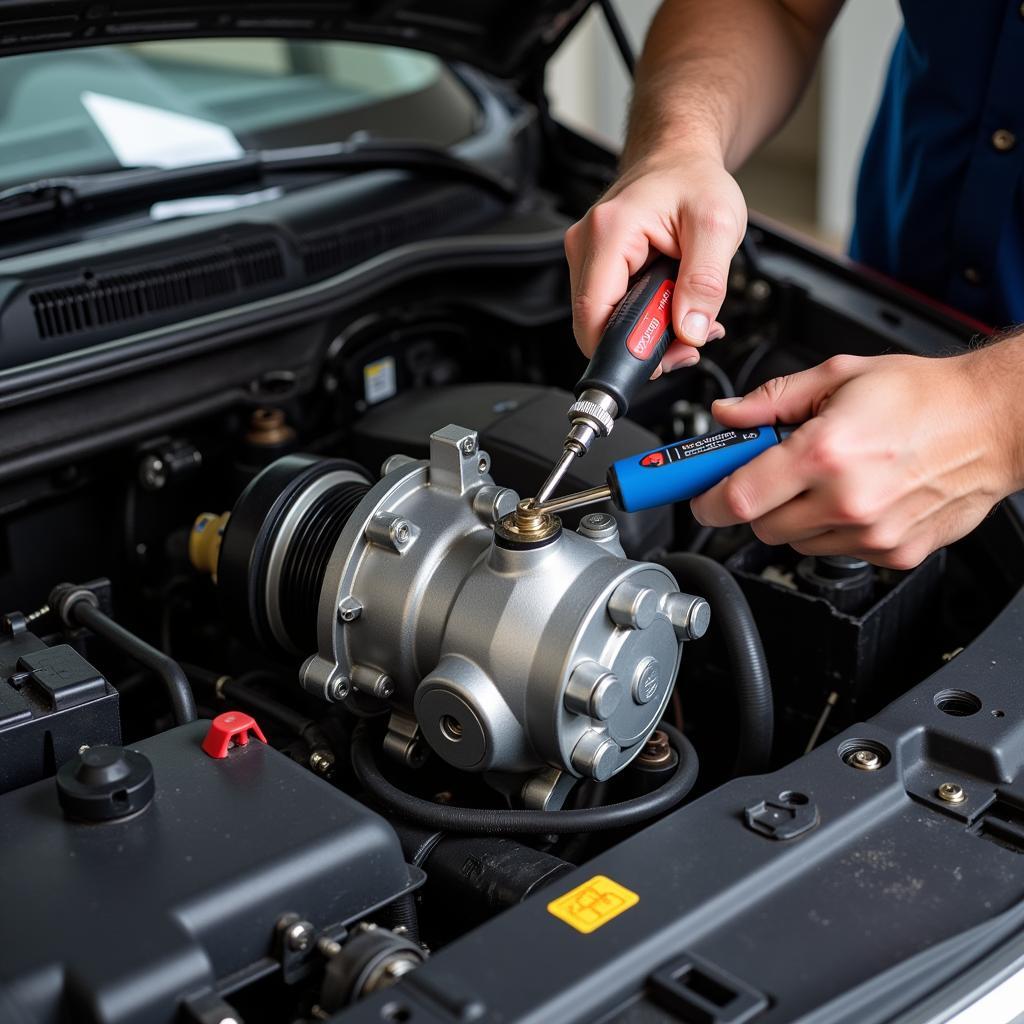 Inspecting a Car AC Compressor
Inspecting a Car AC Compressor
Diagnosing the Problem: What is Needed to Fix Your Specific Car AC Issue?
Identifying the root cause of your car AC problem is crucial for effective repair. Here’s a step-by-step guide to help you diagnose the issue:
- Check the Airflow: Turn on the AC and check the airflow from the vents. Weak airflow could indicate a blower motor problem.
- Check the Temperature: Is the air cool but not cold enough? This could suggest low refrigerant.
- Listen for Unusual Noises: Strange noises from the AC system could point to a failing compressor or other mechanical issues.
- Check for Leaks: Look for signs of refrigerant leaks around the AC components.
- Use a Gauge Set: If you have experience, use a gauge set to measure the refrigerant pressure. This can provide more precise information about the system’s status.
Knowing how to fix ac switch in car can also be beneficial, as electrical issues can sometimes be the underlying cause.
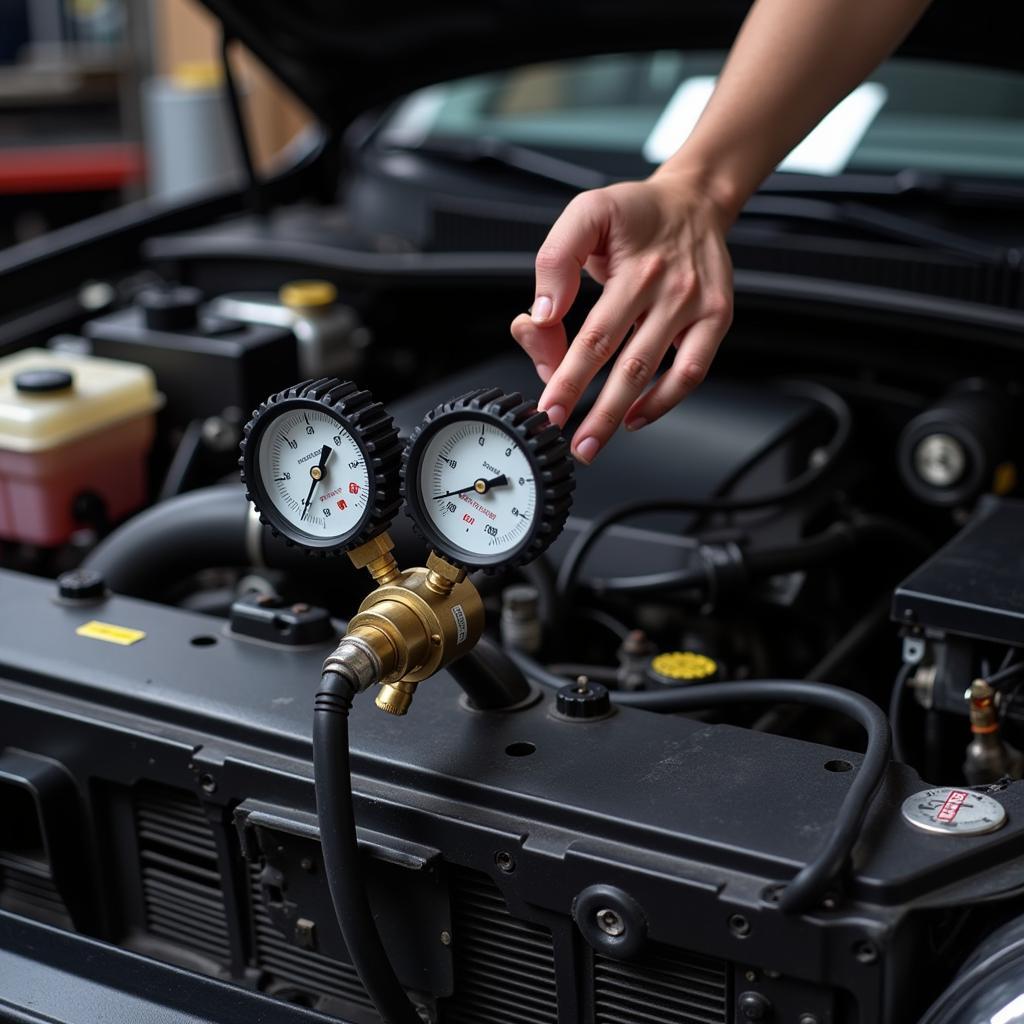 Mechanic Checking Car AC Refrigerant Levels
Mechanic Checking Car AC Refrigerant Levels
DIY Repairs vs. Professional Help
Some car AC repairs can be handled by DIY enthusiasts, while others require professional expertise. Simple tasks like replacing a cabin air filter or checking fuses can be done at home. However, more complex repairs, such as replacing a compressor or repairing leaks, are best left to certified technicians.
“Knowing your limitations is key,” says John Miller, a seasoned automotive technician with over 20 years of experience. “While some AC issues are simple fixes, others require specialized tools and knowledge. Don’t hesitate to seek professional help when needed.”
What You Need to Fix Car AC: Tools and Materials
Depending on the specific repair, you might need various tools and materials. These could include:
- Refrigerant
- Gauge Set
- Vacuum Pump
- Leak Detector
- AC O-rings and seals
- Wrenches and screwdrivers
- Safety Glasses and gloves
Cost Considerations: How Much to Fix Car AC
The cost to fix car AC varies depending on the problem and the labor rates in your area. Simple repairs might cost a few hundred dollars, while more extensive repairs could run into thousands. Resources like how much fix car ac and the cost to fix air condition car can help you estimate the potential expenses. You might also find helpful information on how to fix a leak in the car ac.
“Getting multiple quotes from reputable repair shops is always a good idea,” advises Sarah Chen, an automotive consultant. “This allows you to compare prices and choose the best option for your budget.”
Conclusion: Keeping Your Car AC in Top Shape
Knowing what is needed to fix car AC problems empowers you to make informed decisions about your vehicle’s maintenance. By understanding the common issues, diagnostic procedures, and repair options, you can ensure a comfortable and cool driving experience. Remember, regular maintenance and prompt attention to any AC issues can prevent costly repairs down the road. Feel free to contact AutoTipPro at +1 (641) 206-8880 or visit our office at 500 N St Mary’s St, San Antonio, TX 78205, United States for any assistance with your car AC needs.
FAQ
- How often should I recharge my car’s AC? Typically, every 2-3 years, but it depends on usage and potential leaks.
- What are the signs of a leaking car AC? Weak cooling, hissing sounds, and a sweet smell.
- Can I add refrigerant to my car AC myself? While possible, it’s best left to professionals due to safety and environmental concerns.
- Why is my car AC blowing hot air? This could be due to low refrigerant, a faulty compressor, or electrical problems.
- How can I prevent car AC problems? Regular maintenance, including inspections and timely repairs, can prevent major issues.
- What is the most expensive part of a car AC system to replace? The compressor is often the most expensive component to replace.
- Is it bad to run my car AC on full blast all the time? While not necessarily harmful, it can put extra strain on the system and increase fuel consumption.




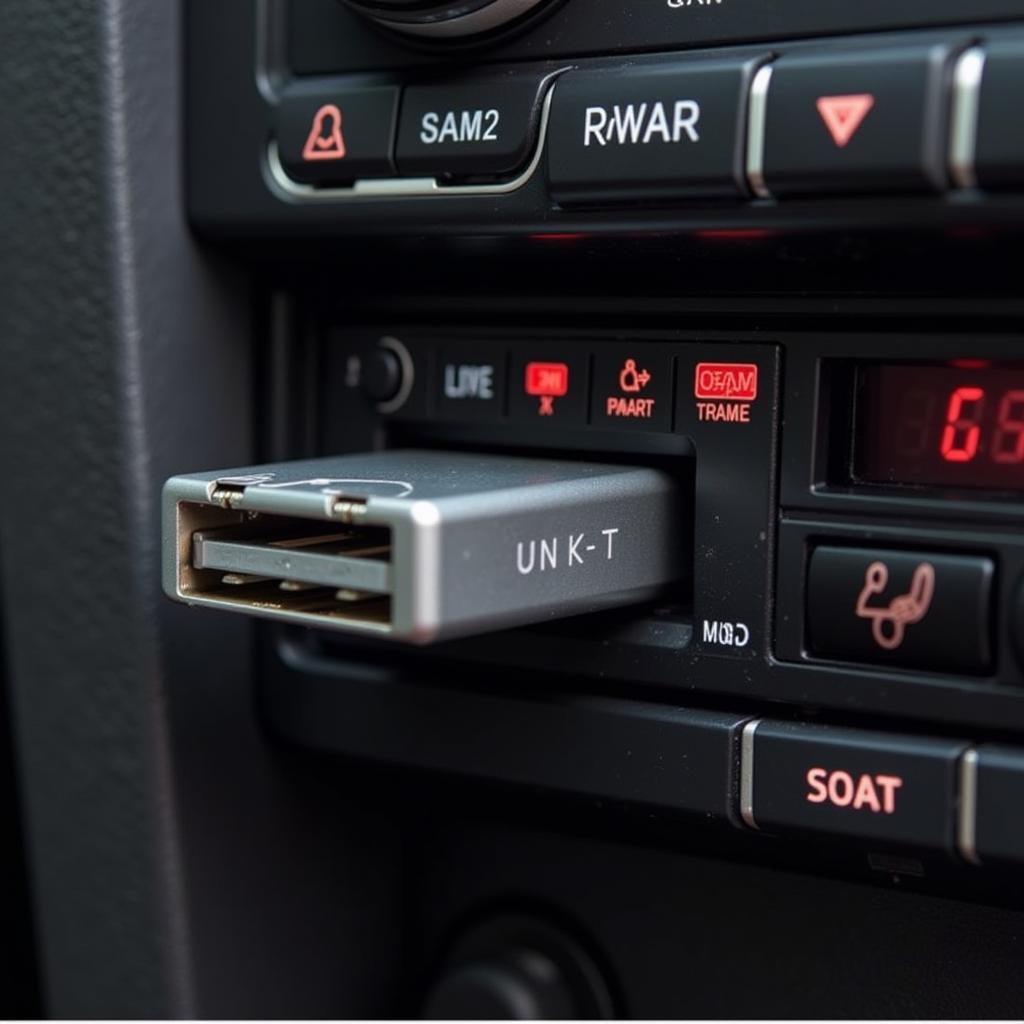
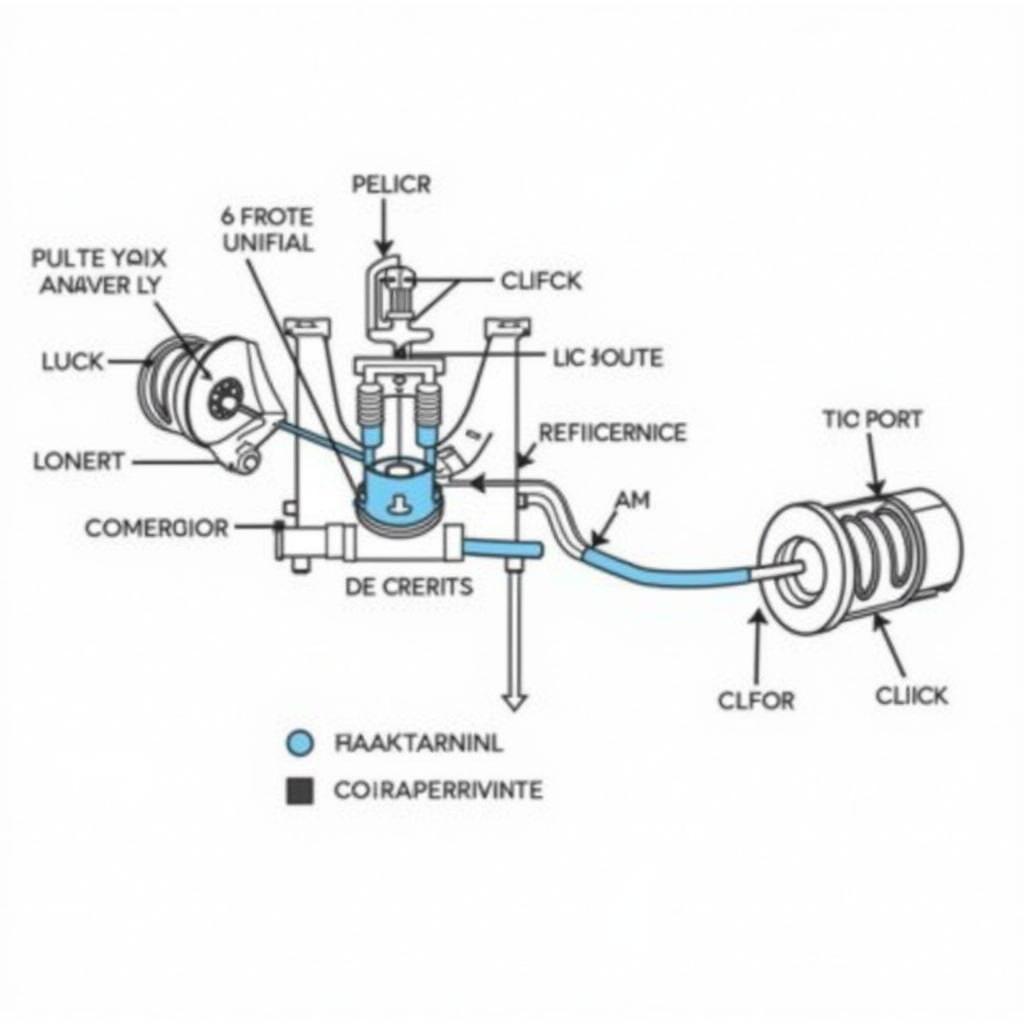
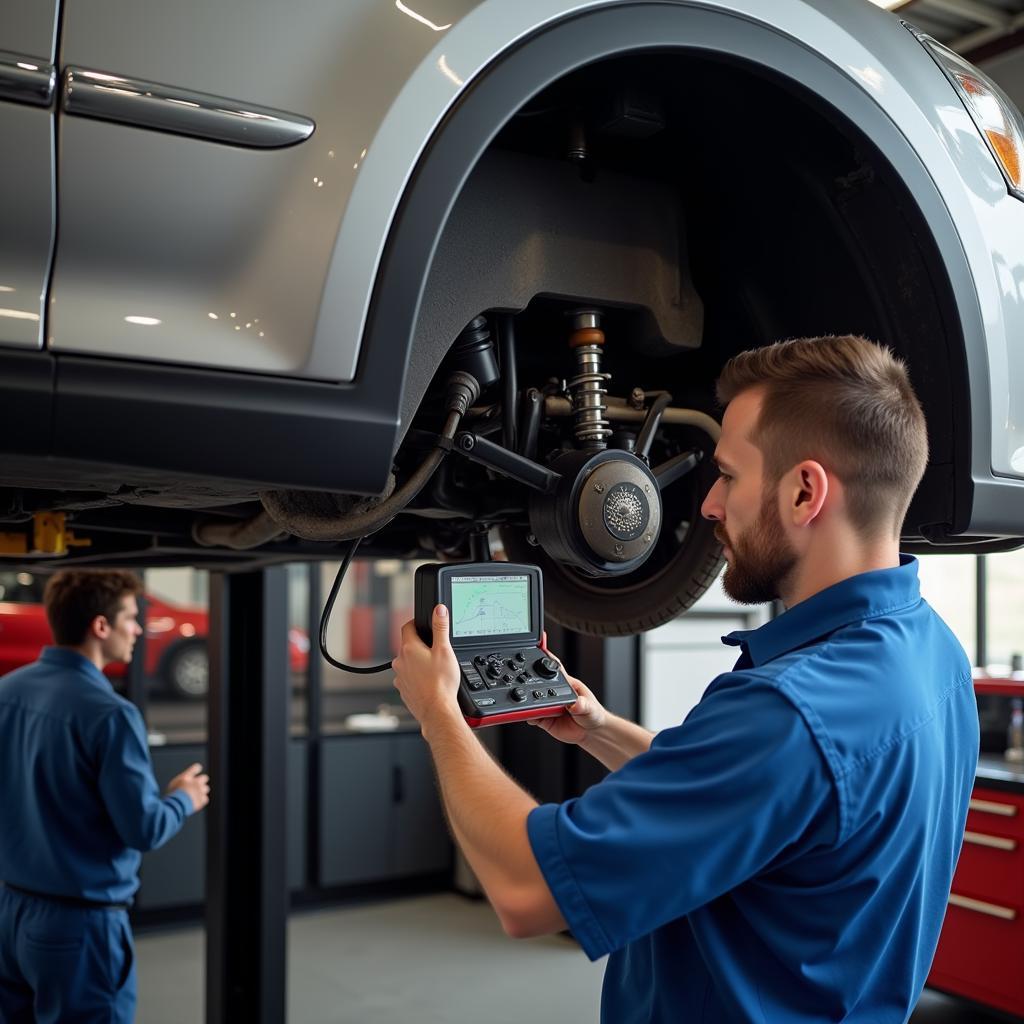
Leave a Reply